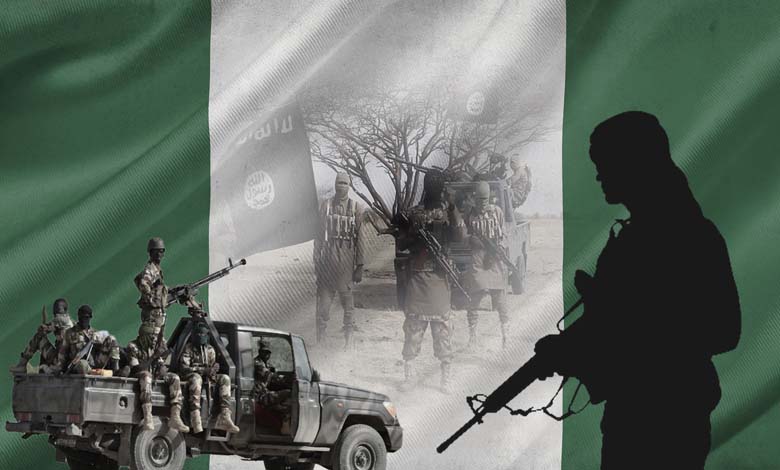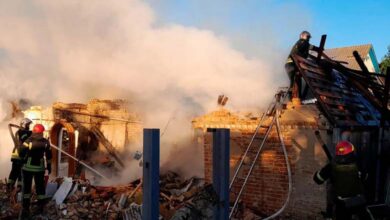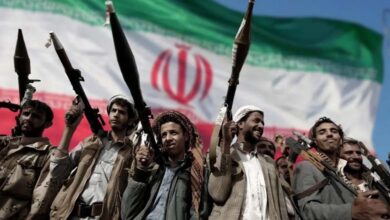Facing Boko Haram: Why is the Nigerian Army Struggling?

Booby-trapped roads and communities targeted by repeated assaults – these features of rising threats have taken hold in northeastern Nigeria, aiming at both civilians and soldiers, raising fears of a return to the country’s “dark past.”
Armed with more advanced tactics and external support fueling its momentum, Boko Haram has redrawn the map of fear in northeastern Nigeria, wearing down the state’s response capacity.
-
Black Monday in Nigeria: Stay Home or Risk Death
-
Alarming Security Deterioration in Nigeria: Civilians Trapped Between Boko Haram and ISIS
With each “successful” terrorist attack, the line between a bloody past and the present blurs, prompting a critical question: is Nigeria losing a war it once claimed to have won?
At the height of its attacks in 2013 and 2014, Boko Haram gained global notoriety after abducting 276 schoolgirls from Chibok and taking over territory the size of Belgium.
Although it lost much of that territory due to military campaigns, a fresh wave of Boko Haram attacks has renewed fears of a return to the “dark past,” according to the Associated Press.
-
Increase in terrorist organization crimes since the beginning of 2025… What are the details?
-
“Borno Attack” in Nigeria: A Bloody Confrontation and Heavy Losses for Boko Haram
Borno State Governor Babagana Zulum recently warned of strategic losses, expressing concern that military formations in the state are being displaced “almost daily without resistance.”
Federal lawmakers have highlighted the increasing sophistication of weapons used by terrorists and called on the government to strengthen military capacity.
Last Friday, senior army commanders visited the troubled area of Gamboru, near the Cameroon border, promising to deploy more troops to fight Boko Haram.
-
The Emergence of a New Jihadist Group Exacerbates Nigeria’s Security Woes
-
The Growing Threat of Terrorist Escapes from Prisons in West Africa: Details
Boko Haram took up arms in 2009 to fight Western education and impose its radical interpretation of Sharia law. The conflict has since spread to Nigeria’s northern neighbors, killing about 35,000 civilians and displacing more than two million people, according to the UN.
In the latest attack last week on the village of Jajibo in Borno State, Boko Haram terrorists killed nine members of a local militia supporting the army after soldiers fled the base upon learning of the group’s advance, according to the group’s statement and aid workers.
The Hawul region, particularly Nilni Kwari in Borno, includes some of the affected villages. Some residents, like Kwari—a postgraduate student in Maiduguri, the state capital—say returning home is no longer safe.
-
Warnings of Escalating Terrorism in Mali After European Troops Withdraw
-
Algeria creates its isolation by punishing African countries joining the Atlantic initiative
Where is the Army in All This?
Ali Abani, an insider familiar with military operations in strategic Dikwa (Borno State), said military bases suffer from understaffing and remote locations, making them vulnerable. “When these militants come, they overpower the soldiers,” he said.
He added that reinforcements, whether aerial or ground support, are often too slow, giving militants time to strip front-line bases of weapons to strengthen their arsenal. He recalled a May 12 attack where soldiers fled due to being outnumbered, allowing the terrorists to seize weapons.
There have also been reports of former fighters who, despite claiming to have repented, continue to serve as informants and logistics handlers.
-
Withdrawal Day: France gathers its last papers from Niger
-
ECOWAS links easing sanctions on Niger to roadmap
Why is ISIS Expanding Its Influence?
Malachy Samuel, a senior researcher at the Center for Democracy and Development, said the success of ISIS in West Africa, one of Boko Haram’s factions, is due to:
- its regional expansion after gains over its rival,
- and a decentralized structure enabling near-simultaneous, coordinated attacks across multiple areas.
-
After France, the UN Mission “Unwelcome” in Niger
-
History Repeats Itself… On Behalf of the West, War Drums Beat at Niger’s Gates
He noted the unpredictability of such attacks shows the group’s growing strategic sophistication. Support from ISIS in Iraq and Syria is a crucial asset, Samuel emphasized.
This support is evident in ISIS-West Africa’s tactics:
- night raids,
- rapid assaults with light, effective weaponry,
- and the use of modified commercial drones to drop explosives.
-
New Humanitarian Crisis: Power Outages Threaten Millions in Niger
-
Limited Options: Escalating Crisis in Niger and New Conflict Eruption in Africa
Two Factions
Boko Haram has split into two factions:
- Islamic State West Africa Province (ISWAP) – backed by ISIS, focuses on military targets and has overrun army positions in at least 15 attacks this year, killing troops and stealing weapons.
- Jama’at Ahl al-Sunna lil-Da’wa wal-Jihad – increasingly targets civilians and suspected collaborators, relying on kidnapping and theft for ransom.
In May, ISWAP attacked areas including Gajibo, Boni Gari, Marte, Izge, Rann, and the joint Nigeria-Cameroon base at Wulgo and Soueram. It also carried out mostly nighttime raids on Malam Fatori, Goniri, Sabon Gari, Wajiroko, Monguno, and others.












